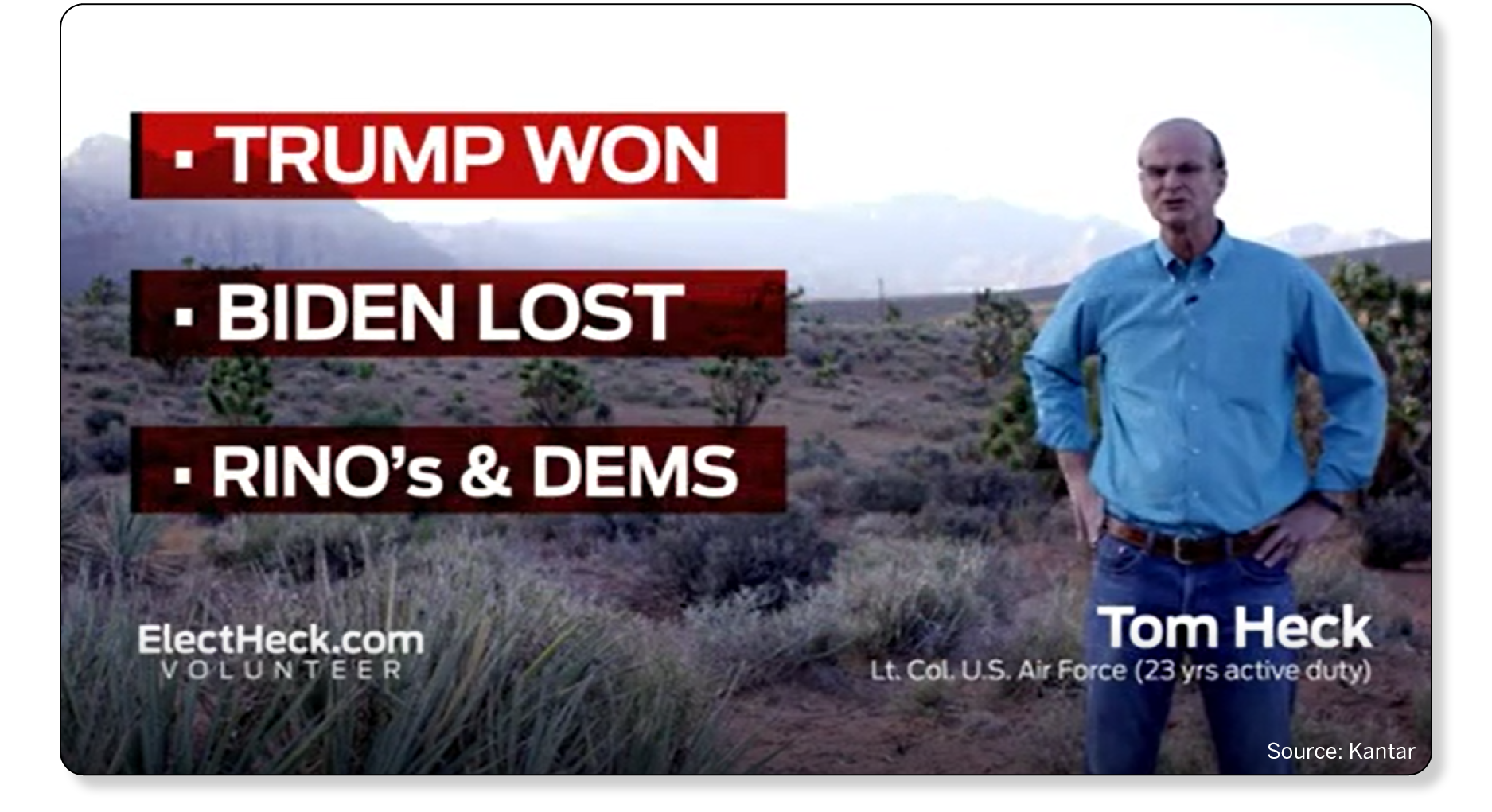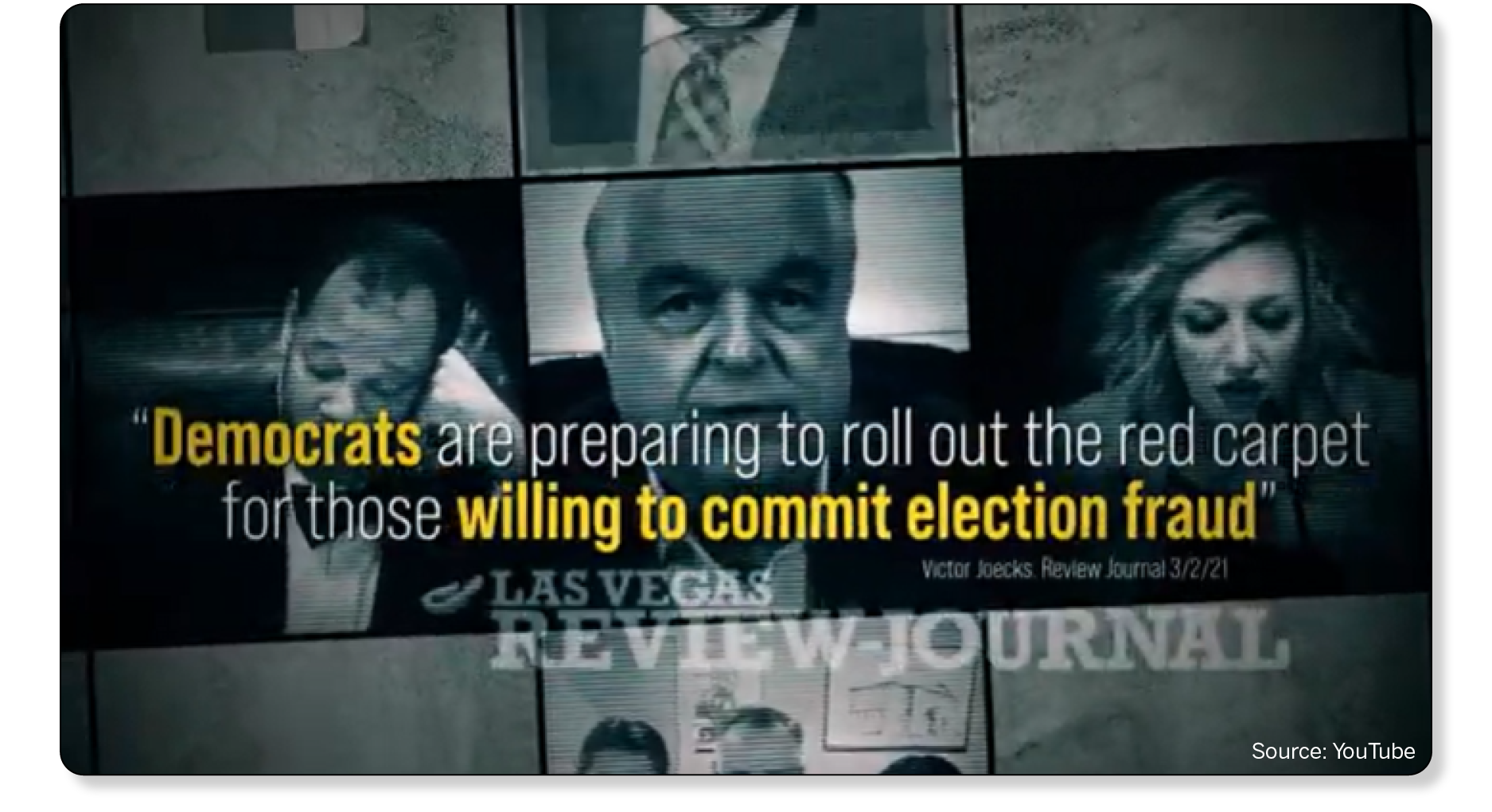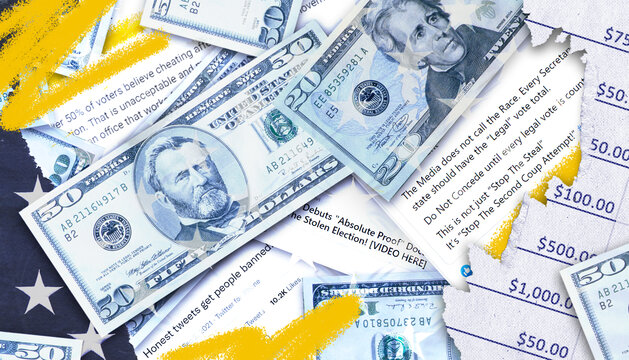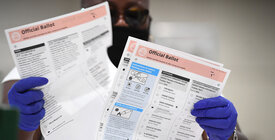
In Nevada’s Primaries, Election Denial and a Campaign Cash Boom
As voters decide the parties’ nominees, campaigns for governor, secretary of state, and local election officials jockey over the Big Lie that the 2020 election was stolen.

Part of
After playing a prominent role in last month’s primary in Georgia, election denial is facing another test in Nevada, which holds its primary next week. Georgia’s primaries for governor and secretary of state eliminated top candidates who staked their candidacy almost entirely on the Big Lie, making the prospect of an election denier running or certifying the statewide 2024 elections there look far less likely.
But the possibility is still very real in other battleground states. In Michigan, for instance, last week’s disqualification of multiple candidates for governor over forged petition signatures increases the likelihood that one of the election deniers remaining in the race advances to the general election. And in Nevada, several statewide and local campaigns facing primary voters next week have made election denial a key issue.
In a sign of the prominence of election administration this year, campaign cash in the race for Nevada’s secretary of state, who will oversee the next elections, has reached $1.8 million, almost four times the amount at an analogous point in any of the last three election cycles, back to 2010. And gubernatorial candidates have altogether raised $21.4 million, more than double the amount at an analogous point in the 2018 election and five times that of 2014.
Gubernatorial candidates leading the polls in the GOP primary have made many false claims about the 2020 election. Joey Gilbert, endorsed by the Nevada Republican Party, defended his claims the election was stolen in a May interview, arguing there were “six states that shut our counting down for the first time in our nation’s history for weeks,” and, “it’s common sense, [Joe Biden] didn’t get 80 million votes.” John Lee sent supporters an email this month that included “the election wasn’t stolen” on a list of contenders for the “most preposterous lie.” Joe Lombardo, leading in the polls, has acknowledged Biden won, although he questioned whether it was “fair and square” and said he doesn’t know whether there was widespread voter fraud because the state didn’t conduct an audit.

A group called Better Nevada PAC has spent at least $1 million on pro-Lombardo ads that claim Gov. Steve Sisolak (D) “made elections less secure” and that Democrats are “manipulating our elections to keep themselves in power.” Better Nevada PAC received $1 million from the American Exceptionalism Institute, a Virginia dark money group that also spent in support of the Georgia gubernatorial campaign of David Perdue, who insisted “the election in 2020 was rigged and stolen.”

In the contest for secretary of state, the four leading fundraisers have all taken a stance on election denial, increasing the likelihood that it will be a central issue in the general election for that office. Cisco Aguilar (D) has criticized “false claims of fraud.” Jesse Haw (R) said Democrats changed voting rules to “manipulate the system.” Jim Marchant (R) claims his own 2020 campaign was a “victim of fraud” and has pushed local election officials to move to hand-counted paper ballots. Richard Scotti (R) has claimed Dominion voting machines change results and supports moving to paper ballots and conducting partisan reviews like the discredited one conducted in Maricopa County, Arizona.
A Virginia super PAC is also active in the secretary of state race. The group, Americans for Secure Elections PAC, was formed in March and funded by $1.2 million from three dark money groups. It has aired ads supporting Haw, using footage from his campaign website, that say he will “end voter fraud.” This week, it began airing ads attacking Marchant. At the same time, a group called Conservatives for Election Integrity, affiliated with an “America First” slate of secretary of state candidates organized by Marchant, aired ads saying he is “the only candidate with a plan to stop election fraud.”
In races for county clerk, the local official in charge of running elections, candidates have similarly used election denial as a basis for criticizing voting machines and pushing for hand-counted paper ballots. In addition, public anger and threats have contributed to at least 5 of Nevada’s 15 elected clerks leaving office since 2020.
In a Republican primary debate for clerk in Nye County, all three candidates “emphatically agreed that Donald Trump won the 2020 election.” And the campaign website for Storey County candidate for clerk-treasurer Jim Hindle declares his role as one of the false electors who tried to assign Nevada’s Electoral College votes to Trump as one of his qualifications.
Early voting is already underway in Nevada. Voters and candidates for election administration positions are aware of the state’s status as a likely 2024 presidential battleground. The results of the primary next week will shed new light on how voters respond to election denial by campaigns.
More from the Tracking Races for Election Administration Positions series
-
Election Denial in the Race for Pennsylvania Governor
The Big Lie that Trump won the 2020 election is a key issue in a contest that could impact the administration of the 2024 elections in a battleground state. -
Big Outside Spending on Election Denial Floods Local Elections in Battleground States
Around Green Bay, Wisconsin, out-of-state groups used messages questioning the legitimacy of the 2020 elections to try to influence local races that will affect the way the 2024 elections are run. -
Financing of Races for Offices that Oversee Elections: February 2022
Fundraising for secretary of state candidates continue to rise at a remarkable pace, and party-aligned groups that are active in election official contests have also seen record-setting donations.




